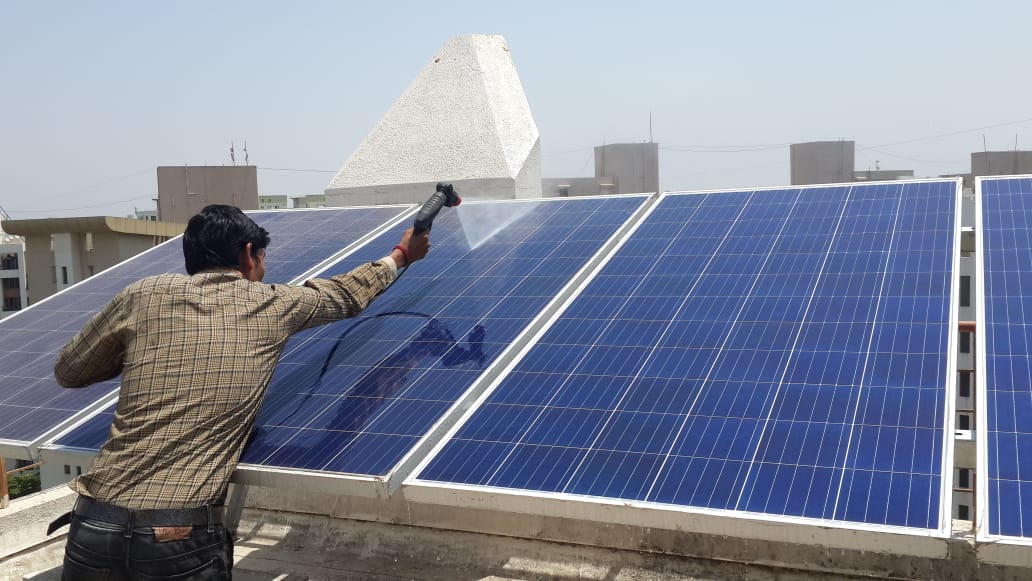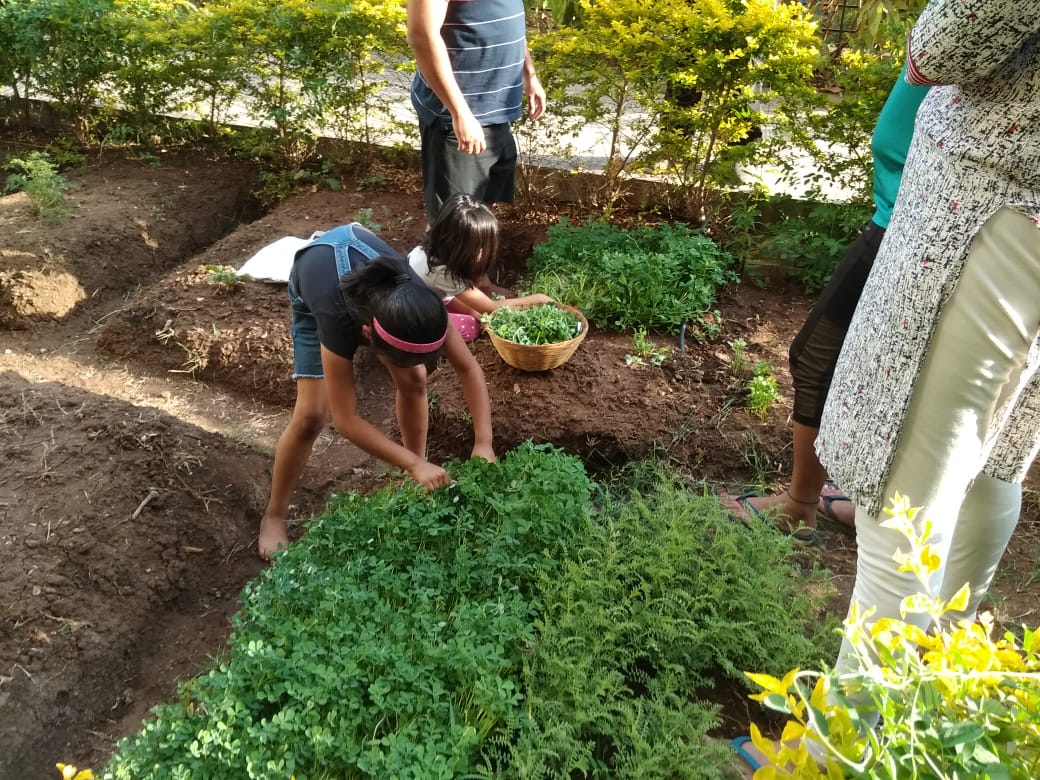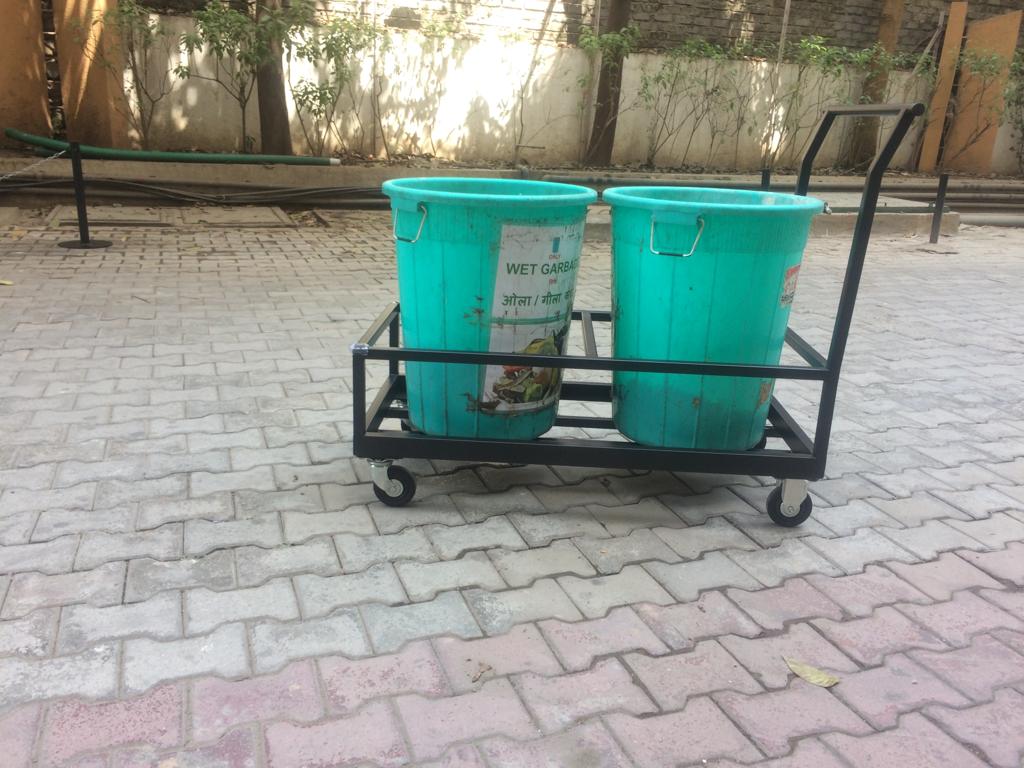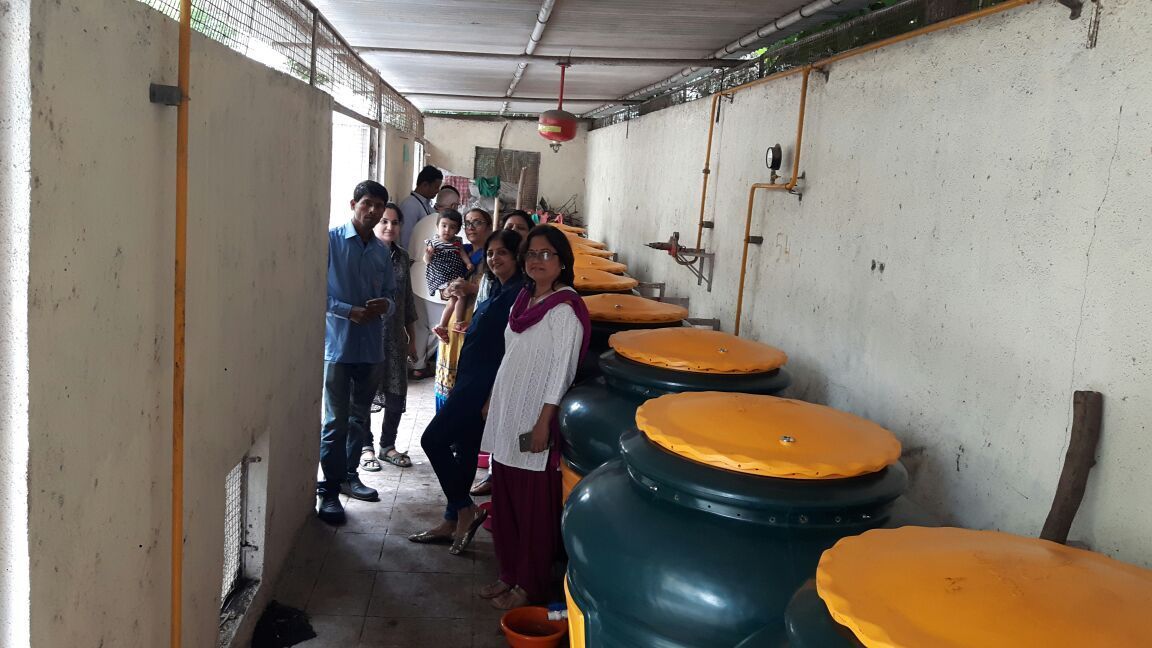Power From Wind, Water From Rain: Pune Society Blazes a Green Trail!
And that's not all. This 5-star rated residential complex uses its wet waste to make compost that's given to farmers for free and utilised in a garden patch to grow organic vegetables! #LiveGreen #SustainableHomes

The Palash Co-Operative Housing Society stands out amid the concrete highrises of the sprawling Wakad suburb in Pune, thanks to the twelve windmills and several solar panels which line its rooftops.
These windmills and solar panels, which supply a substantial percentage of electricity to the complex, are just the tip of the iceberg if all of Palash’s environmental initiatives are to be considered.
From a sewage treatment plant to rainwater recharge pits, its premises house almost every aspect of a sustainable future.
It is important for each one of us to save as much water as we can. Browse through our range of water-saving devices to be an active part of water conservation.
Speaking to The Better India, Kiran Vadgama, the chairman of the society, informs, “We started way back in 2012 when eco-friendly living was almost an alien concept to the country. In that year itself, we had installed twelve windmills to supplement our power supply.”
The electricity generated from the windmills and 66-kilowatt worth solar panels helps light all the common spaces in the complex spanning across 4 acres.

The buildings in the complex have been built with fly ash bricks, which, aside from resolving the waste woes, also help in keeping the rooms cooler. Thus, the need for air-conditioners is often negated even in scorching summers.
All the 295 flats with their 1,500+ residents have mandatorily installed aerators in their taps, which cumulatively saves as much as 35,000 to 60,000 litres of water every day.
The complex also has a 750-litre well which serves as a rainwater harvesting tank. In the monsoon, all the rainwater from the terraces is diverted into the well and later used for daily chores. Additionally, several rainwater recharge pits have been dug out across the society premises. These help in recharging the groundwater tables of an extensive neighbourhood, simply from the surface runoff rainwater.
Another interesting measure adopted by some of the residents is the zero-water car-wash. Instead of gallons of water and chemical soaps, they use a locally made herbal liquid to render their cars as shiny as new.
At one time, the surroundings of Palash were filled with the cacophony from the city. Today, over 1,600 trees planted by the residents in the periphery invite rare birds and animals in the heavenly abode. Besides, a small patch of green designated for organic farming is maintained exclusively by the children in the society.

“We need to inculcate the concept of sustainability in the next generation. And what better way to learn it than practise farming with fun?” shares Mr Vadgama.
While the law mandated the presence of a functional sewage treatment plant (STP) in a housing society as large as Palash, what the residents did above and beyond the mandate deserves special mention.
They installed a drip irrigation channel from the STP which straightway waters the plants in the farming patch, gardens, and periphery of the complex.
Additionally, in 2016, the Maharashtra state government passed the law that any housing complex generating more than 100 kg of wet waste has to manage the waste on their own. It was then when Palash residents strictly started monitoring their waste and segregating into three types—wet, dry and hazardous.

The wet waste now gets converted into compost within 25 days, thanks to the special daily dump cans in Palash.
“In a year, we generate around 5 tons of compost. Around 1.5 tons of it are used up in our own gardens. The rest we distribute among needy farmers, completely free of cost,” informs Mr Vadgama.
Besides, Palash also has an in-house incinerator for getting rid of their hazardous waste.
Residents at Palash now diligently adhere to the eco-friendly way of life, be it waste segregation or tree plantation drives. But, the scenario was not so conducive even a few years ago.
Mr Vadgama explains, “Most of the flat-owners who resided here agreed with our proposals. The main hindrance came from the tenants in the leased out properties. Most of them are a floating population who move out after a year or two. It took us almost a year to convince them about the importance of waste segregation or water conservation. Now, we ensure that all new residents are provided with the complete guidebook about the way of life in Palash, so they also join in the endeavour.”

Over the years, Palash Co-Operative Housing Society has added on to their list of environmental activities, earning several awards and accolades. Pimpri Chinchwad Municipal Corporation awarded them the Best Society Award in 2017-2018. Besides, their initiatives have received extensive coverage in national media. In fact, today, students from top institutions come to Palash to learn about environmental management methods.
(Edited by Gayatri Mishra)
Like this story? Or have something to share?
Write to us: [email protected]
Connect with us on Facebook and Twitter.
If you found our stories insightful, informative, or even just enjoyable, we invite you to consider making a voluntary payment to support the work we do at The Better India. Your contribution helps us continue producing quality content that educates, inspires, and drives positive change.
Choose one of the payment options below for your contribution-
By paying for the stories you value, you directly contribute to sustaining our efforts focused on making a difference in the world. Together, let's ensure that impactful stories continue to be told and shared, enriching lives and communities alike.
Thank you for your support. Here are some frequently asked questions you might find helpful to know why you are contributing?













